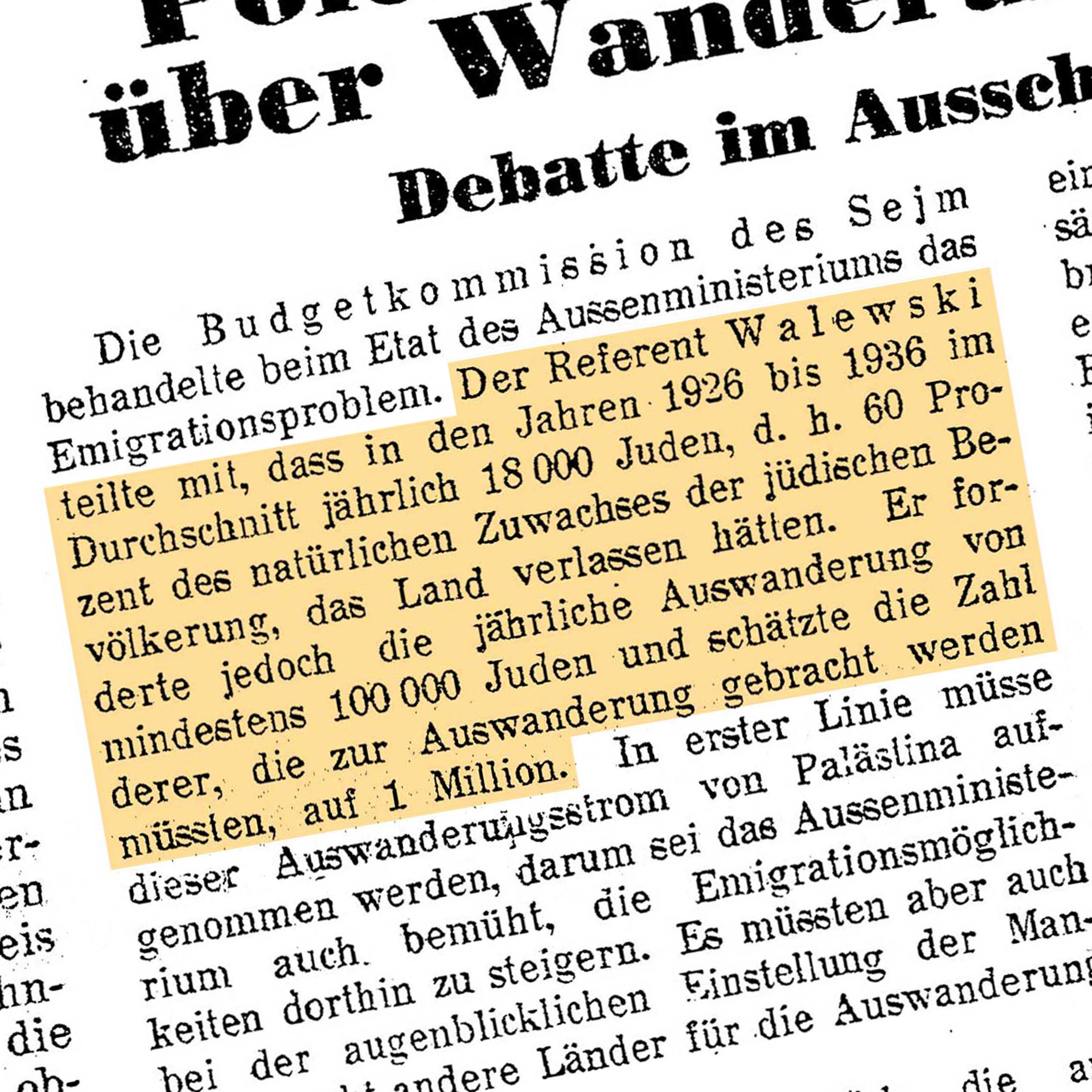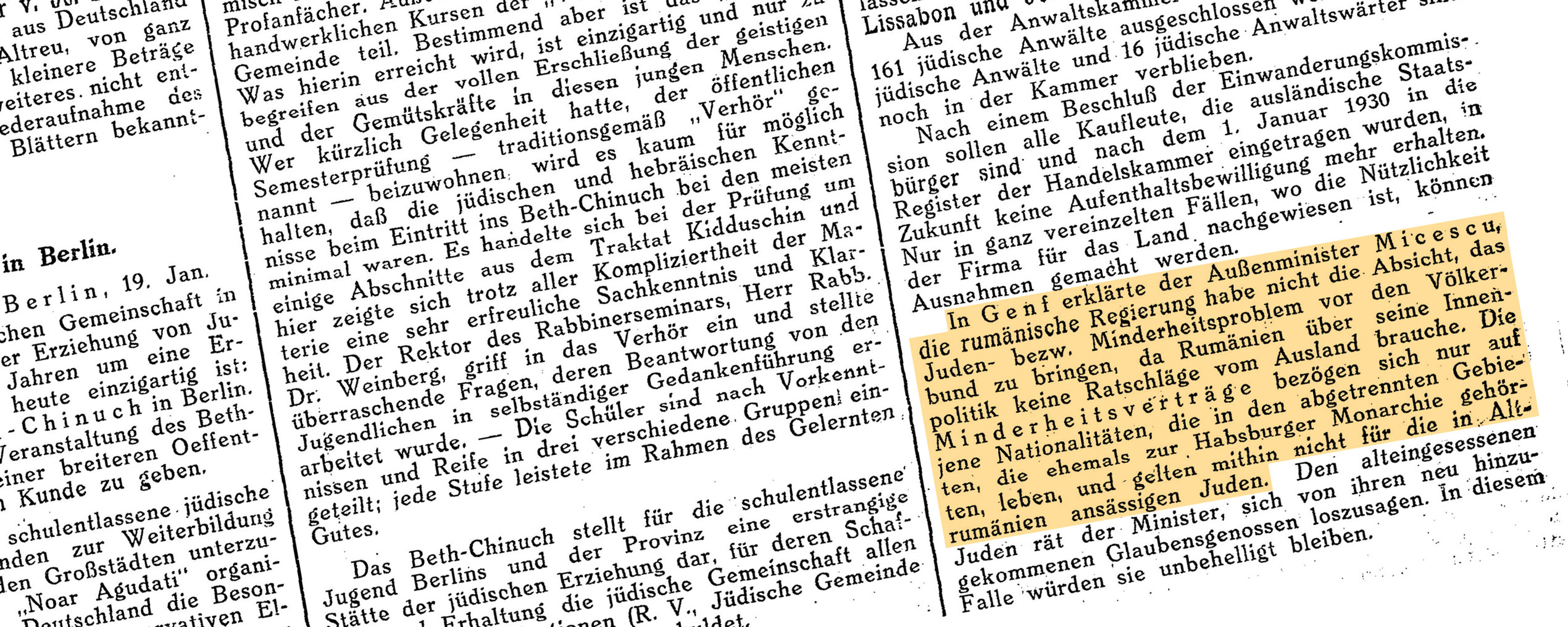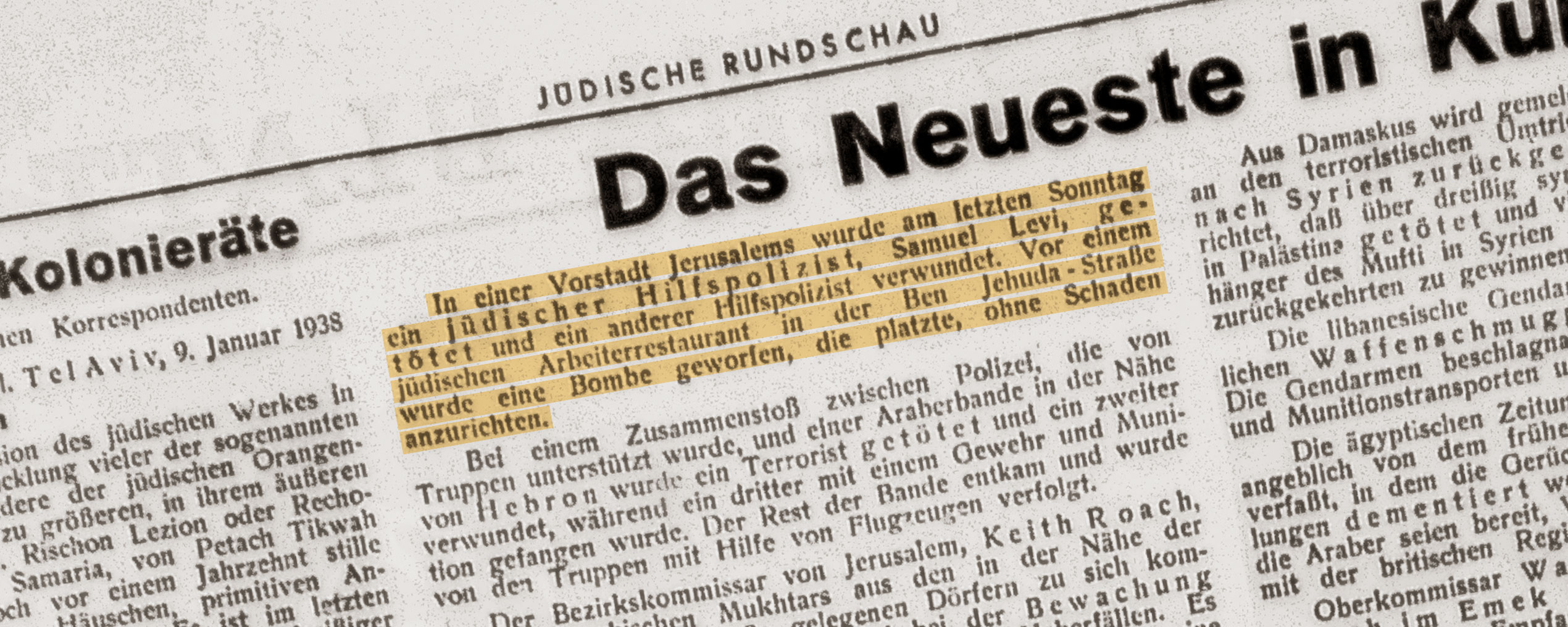No Reward for Patriotism
The Nazis suspend the newspaper of the Central Association of German Citizens of Jewish Faith.

“The paper is the second Jewish organ to be suspended within a week.”
Berlin
The C.V.-Zeitung, Paper for German and Jewish Culture was the organ of the “Central Association of German Citizens of Jewish Faith.” The Central Association’s political bent was liberal-conservative and it strove to represent the interests of all Jews, regardless of religious affiliation. The newspaper aimed to raise the self-confidence of German Jews as well as to deepen their love of “both German and Jewish culture.” (Jüdisches Lexikon 1927). January 30, 1938 was the last day of ordinary operations for the C.V.-Zeitung. On the 31st, the Nazis ordered its temporary suspension until February 24 with no reason given.
SOURCE
Institution:
Collection:
Source available in English











































